-
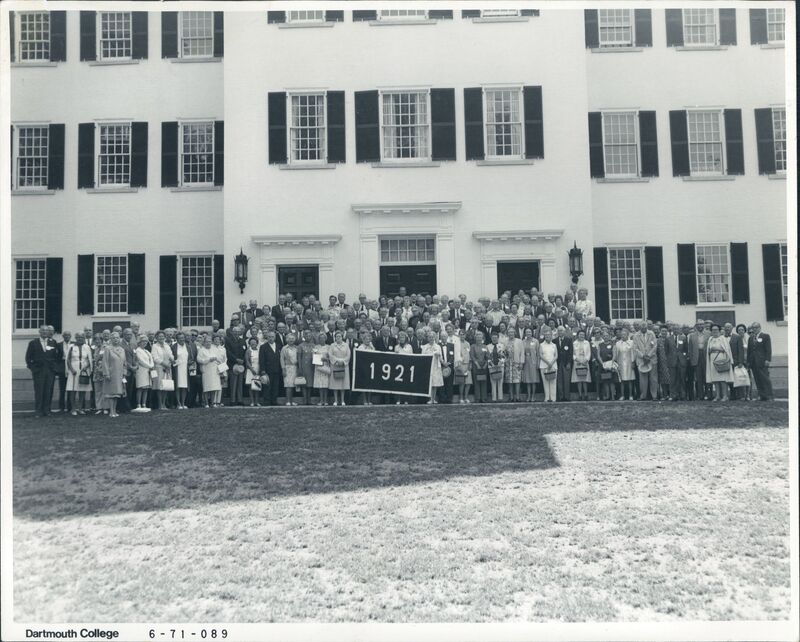
What was most notable about the Alumni response to the survey is that while the majority were pro-coeducation, the feeling of the two camps, pro and con, were deeply entrenched in their stances. It is also important to note that the older alumni were the least in favor of coeducation.
-
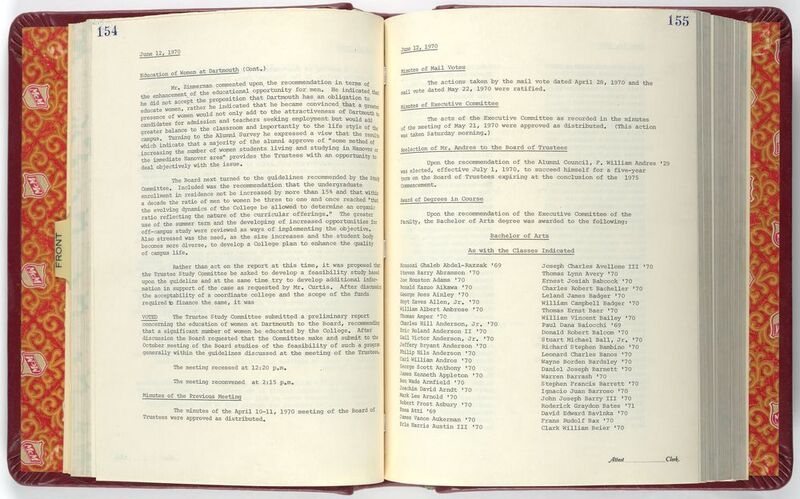
Despite stiff resistance by some members and an attempt by the Chair to postpone the implementation of coeduction, on November 21 the Trustees voted unanimously for Year Round Operation and by a majority to integrate women into the College begin in September of 1972.
-
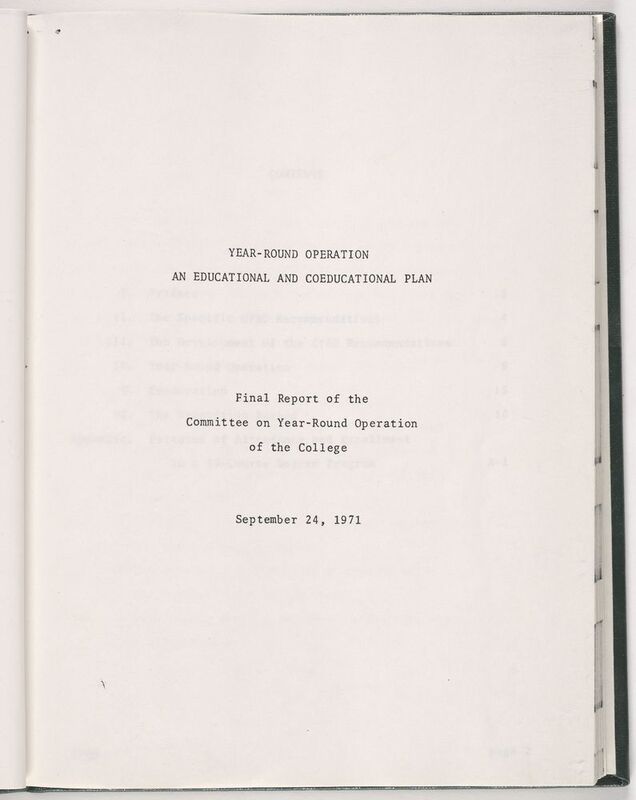
On September 24 1971, the Committee on Year Round Operation submitted its report to the Trustees. The Committee presented six recommendations related to Year Round Operation (later known as the Dartmouth Plan). They also provided three recommendations related to coeducation that flew in the face of what the Trustees had discussed. The first of these was that the College should begin matriculating women in September of 1972.The second was that the enrollment should aim for 3,000 men and 1,000 women (the Trustees were hoping for smaller ratio of women to men) and finally that the physical plant of the College should be expanded to accommodate 3.400 undergraduates. On October 9, the Trustees voted to accept the principles laid out in the Committee’s report. This indicated a major shift in the Board’s thinking.
-
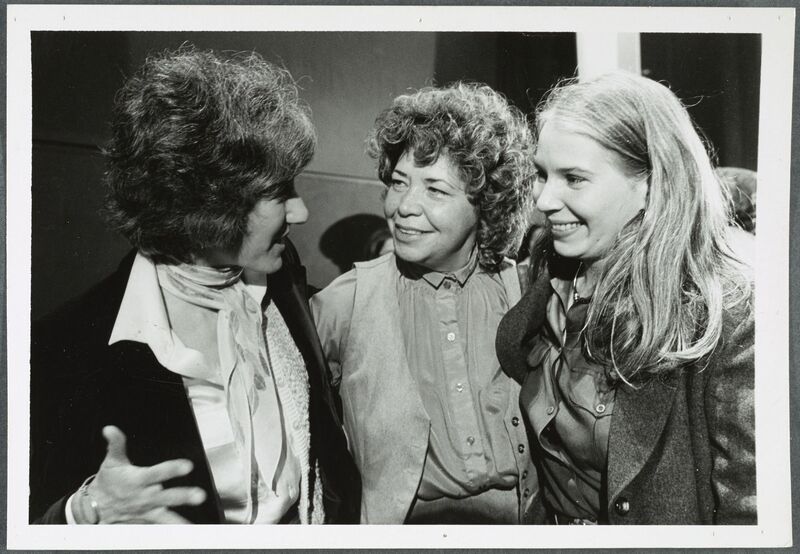
While the Board wished to pursue an associated school for women, the faculty, following the lead of the women faculty and women exchange students on campus who saw the associated school as separate and unequal, voted for full integration.
-
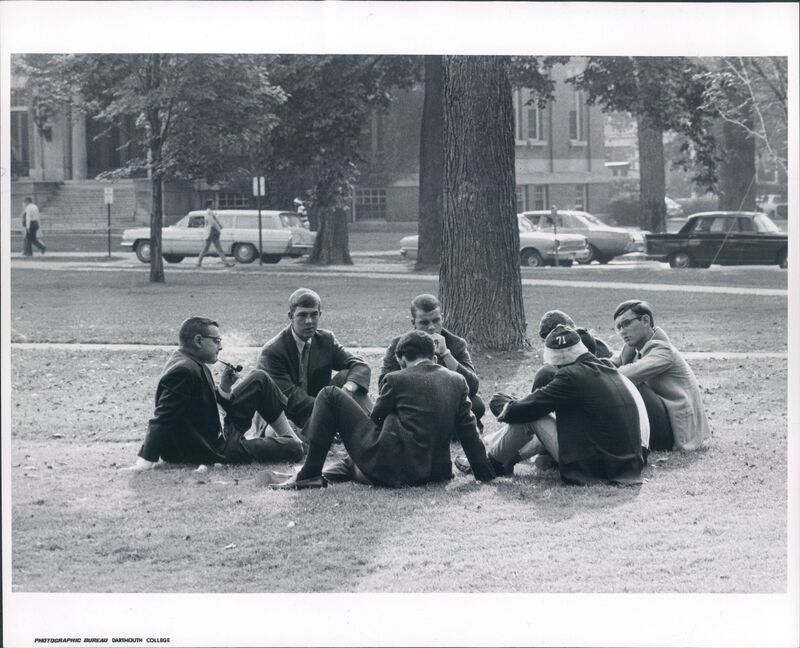
The faculty were in favor of coeducation as were a majority of students. While the overwhelming majority of students, 82%, favored coeducation, what is not clear from this survey, and would raise a dark cloud over the first year of coeducation, was that the 14% of students opposed to coeducation constituted 526 students. Although a minority, 526 students is still a large number of individuals opposed to coeducation.
-
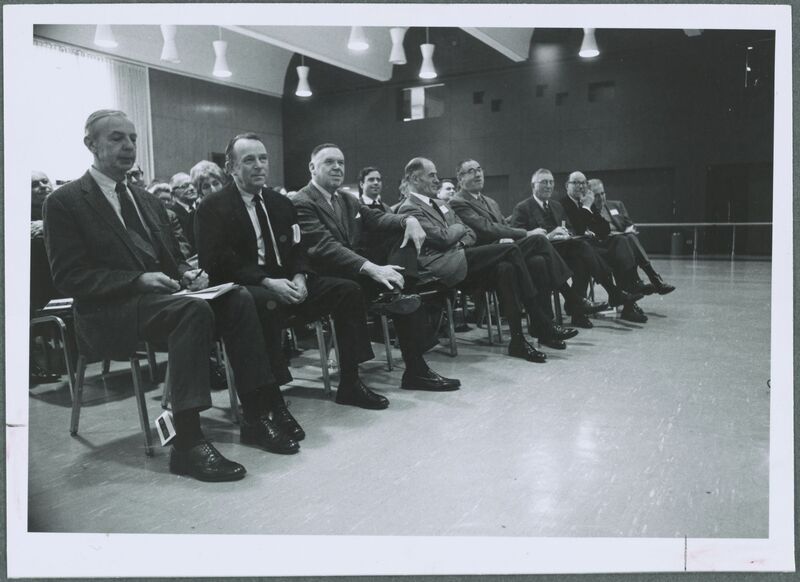
The divided opinion regarding coeducation among alumni based on their age is important to note because the Board was made up primarily of the classes from the 1920s, which were among the classes most opposed to coeducation.
-
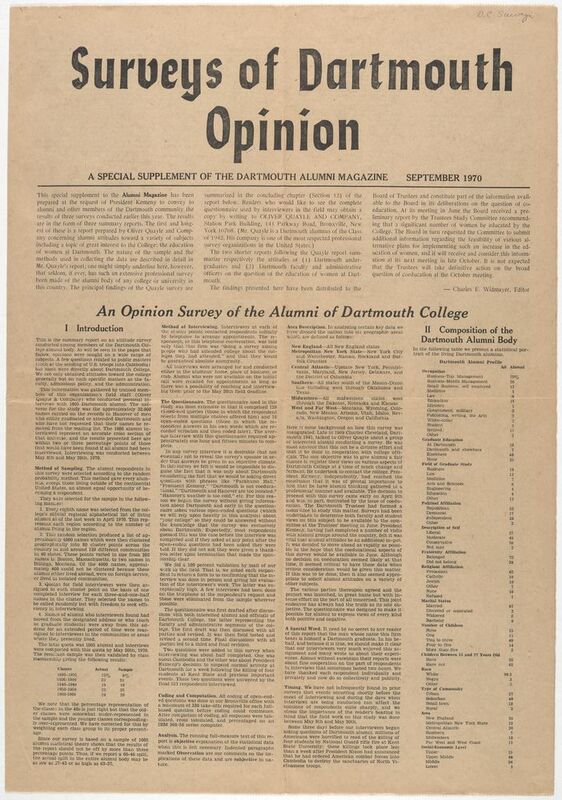
The Quayle report outlined the responses to the survey that Kemeny commissioned. The survey focused on the alumni and faculty and was conducted by a professional, outside firm run by Oliver Quayle, class of 1942. It also included the results of a separate survey conducted with students.







